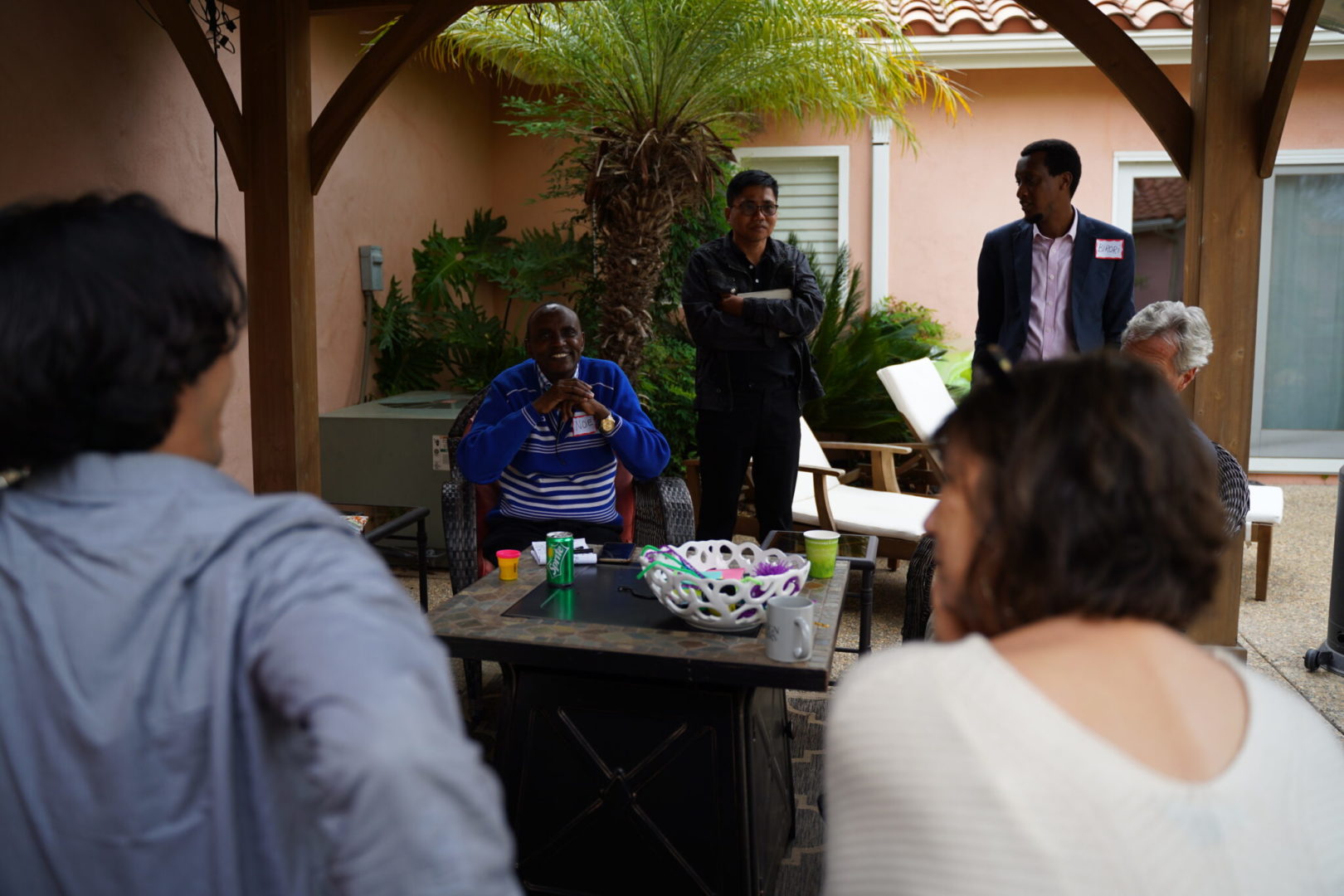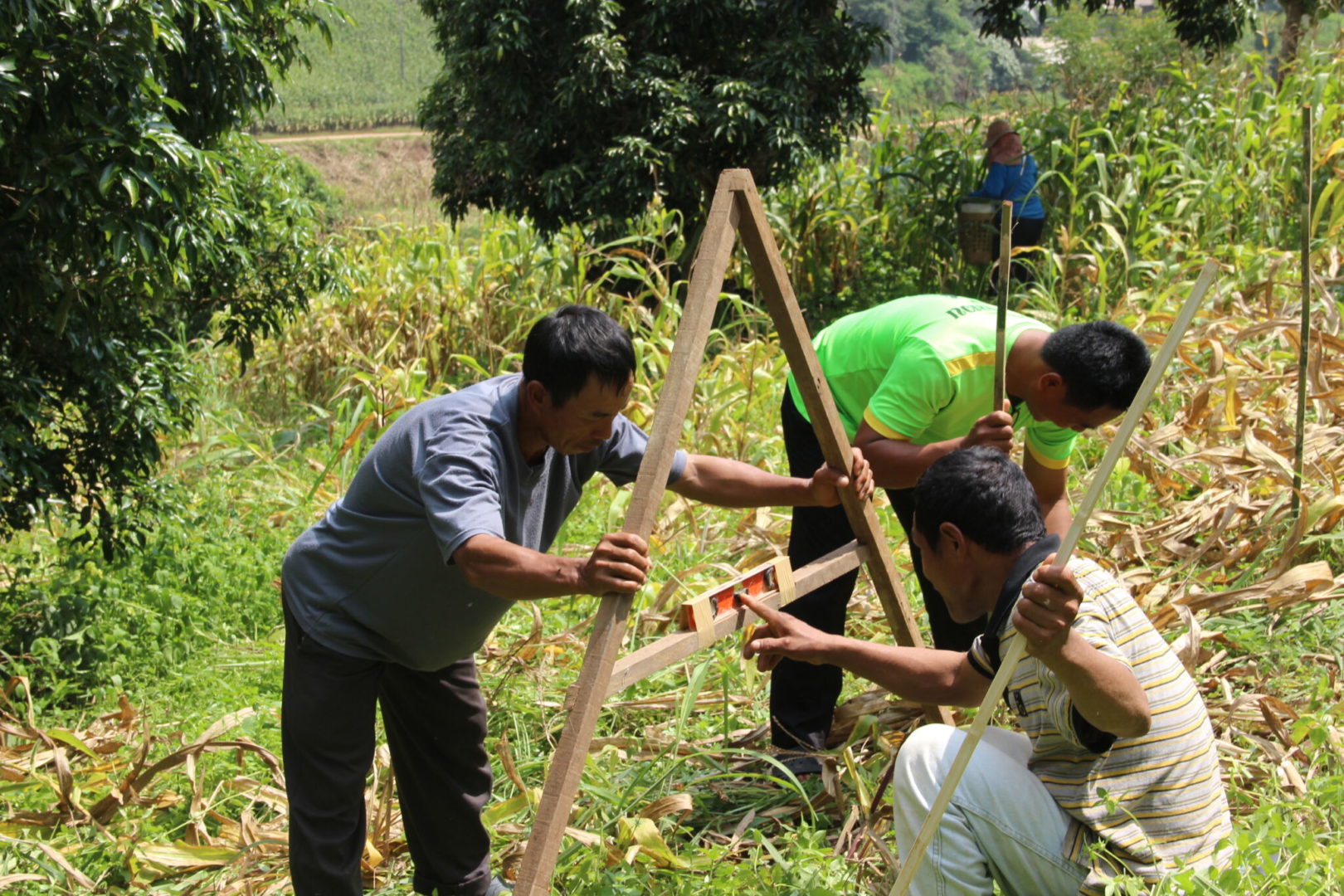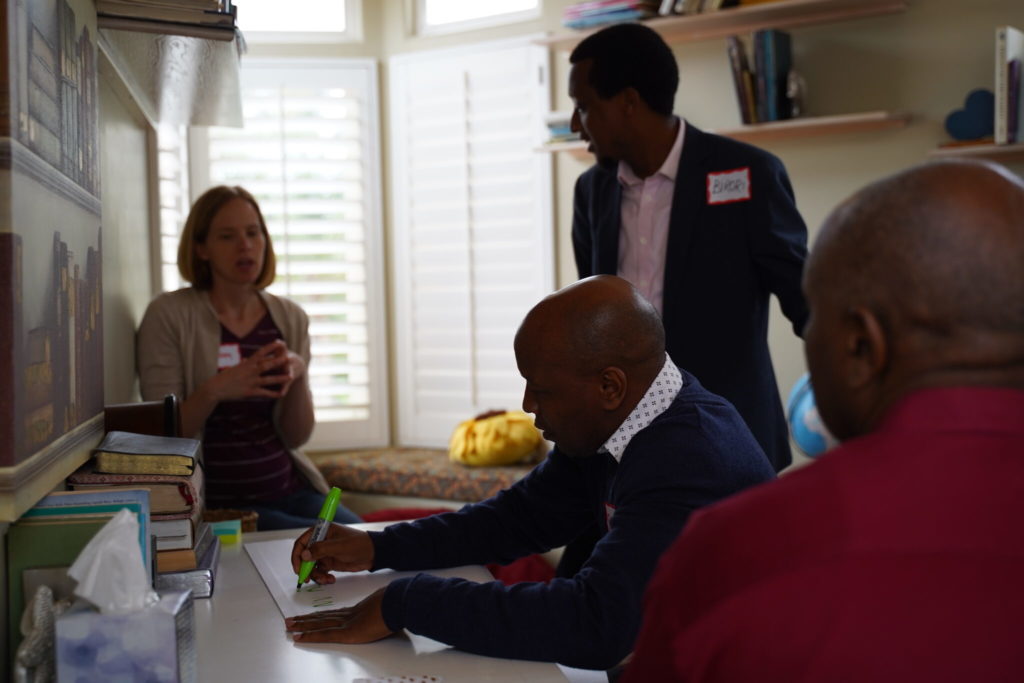Plant With Purpose partners are autonomous but interdependent
On the day that Plant With Purpose was established in 1984, two organizations were created as partners.
Floresta International was founded in San Diego, California, and would later become known as Plant With Purpose.
In the Dominican Republic, Floresta Incorporada was launched, where it continues working to this day.
While these two organizations were established to be operationally autonomous, their relationship was fully collaborative. Local leadership teams were chosen at both organizations, however, from day one they committed to working together as partners. Perhaps the best way to describe their relationship is autonomous but interdependent. To this day, this remains the way that Plant With Purpose operates at a global level.
Plant With Purpose has since grown into a truly global organization. We now operate in eight countries across three continents. Programs were launched in Haiti, Mexico, Tanzania, Burundi, Thailand, and the Democratic Republic of Congo (DRC) in the decades that followed. In 2018, Plant With Purpose began working in Ethiopia, its newest partnership.
As we’ve grown, we continue to apply a model of interdependence. In each program country, our partnering organizations are entirely comprised of locals. We invest in local leadership and knowledge, rather than sending out unfamiliar expats to implement our environmental interventions and community development programs. As we’ve continued to see its benefits, we’ve expanded this approach to create multilateral partnerships.
What are multilateral partnerships?
Multilateral partnerships means that not only do our global partners have a relationship with us, they also have a relationship with one another. Together we are part of a collaborative network working toward both local and global impact. The leaders of every participating country program learn from each other while also contributing experience and knowledge to the collective Plant With Purpose family.
Our international partners pursue collaborative opportunities. They develop materials in tandem, share best practices, and exchange knowledge. Very often, this results in the development of shared tools. Our environmental core curriculum, Seeds of Change, is perhaps the strongest example of a shared tool that was developed in collaboration with all country partners. The Seeds of Change curriculum ultimately makes use of a wide variety of techniques shared from all around the world.
Additionally, our international programs teams have refined and made use of a Technique Application Monitoring Tool to evaluate the rate at which various regenerative farming practices are adopted. The development of our watershed model also demonstrates how effective methodologies can be taught and shared across our network, allowing best practices to lead to best results.

A planning meeting with members from our Burundi, DRC, Thailand, and US members
The process of collaboration
“This has decentralized our programs and promoted collaboration,” describes Bob Morikawa, Plant With Purpose’s International Programs Director. “It has also promoted a kind of global synergy. We have found that, while every country and every context is unique, we also have a lot in common. There is more to share than to divide us. That is an aspect of these processes that I have found encouraging.”
We also have international partner meetings that invite leadership from all countries to the table. Morikawa continues, “We have developed a robust process which involves dialogue remotely among all partners before an international meeting; intensive and very intentional discussions during the international meeting; and active follow up after the meeting. We are currently using this same approach as we prepare a globally shared spiritual renewal curriculum. We’ve carefully mapped out a process, again involving all partners, with the expectation of completing this over an eighteen-month timeframe.”
Much of this work happens during Plant With Purpose’s International Partnership Planning Meetings, which typically take place every two years. The last in-person gathering was in 2018 in the Dominican Republic. A 2016 meeting in the United States and a 2014 meeting in Thailand were pivotal toward the refinement of shared practices like Plant With Purpose’s watershed model. The 2020 meeting was conducted virtually, which is where the process of developing a shared spiritual renewal curriculum was initiated.
Country-to-Country Exchanges
At Plant With Purpose, we’ve cultivated a system where our partners in Thailand can share techniques on preventing soil erosion with our partners in DRC, or where our partners in Tanzania and in Haiti can get together to discuss the most effective ways to promote savings activities among communities.
Often, this happens in the form of field visits between our partners where knowledge and best practices are exchanged. This isn’t always easy, especially when public health crises or political emergencies impede the ease of travel. But when it is possible, it is more than worth the effort.
From DRC to Thailand
A few years ago, we helped arrange for Birori Dieudonne Gaparani, the Program Manager of our DRC Program to visit Thailand. At the time, our DRC program was our newest, barely two years established. Birori was especially interested in learning about how our program in the hills of Northern Thailand promoted community forest management.
Our Thailand Director at the time, Bunsak Thongdi, helped facilitate Birori’s visit. They visited forest areas outside Chiang Rai, discussed working in the different religious contexts of Thailand, and talked about how to promote agroecology (a practice of interspersing tree and food crops) among forest-dwelling communities. Bunsak also shared the use of data collection tools, and how they could measure community behaviors related to forest management.
The visit ended up being a rich source of valuable lessons that would shape Birori’s leadership over our DRC program. He noted the way the communities in Thailand had promoted the benefits that the forest provided to local populations, like fruits, edible plants, animals, and medicines. He noted their strategy of dividing the forest into one area for use―tree harvesting, farming, and hunting―while the other part serves as a natural reserve with no activity use. He observed the way communities created their own local rules for forest management, and then invited the government to build a more collaborative relationship.
While Thailand and the DRC may be as different as any two countries can be, their leadership teams noted many similarities. Both struggled with the parts of the population that didn’t quite understand the forest benefits and continued to destroy areas. Both strongly relied on local communities to develop their own norms and rules around the forest space. Birori left inspired to proactively promote Plant With Purpose activities among female members, to more vocally share about the benefits of a forest to the community, and to better organize communities to discuss forest health.
In the years that followed Birori’s visit, our DRC program produced some of the most astounding results. Poverty in the area had been cut by two thirds, owing largely to the restoration of the land and the healthier soils in target watersheds where agroforestry and conservation had been promoted.

A-Frame Training implemented in Thailand
Keeping it Global
Birori’s visit is a memorable example of a trip centered around exchanging knowledge. The positive impact seen in the DRC shortly afterwards provides clear evidence. However, it is far from the only example of Plant With Purpose teams sharing knowledge with each other.
In 2018, all African partners sent representatives to Tanzania to learn from the way our Tanzanian program integrates spiritual renewal activities into the rest of its practices. Our Tanzanian team had visited the DRC earlier in order to share and exchange knowledge around community savings activities. In 2018, our Burundi and DRC teams made a cross-border visit, to discuss the watershed model and strategies for scaling it. One year later, our newly-instated Ethiopian director, Getnet Takareke, embarked on a tour of our African programs as part of his launch process.
“These visits are a great way that dialogue and sharing happens,” offers Bob Morikawa. “I think the example of Birori going to Thailand and learning, in particular about community forestry, is a powerful example,” he continued. “Carrying those ideas back home encouraged networks of local leaders who in turn helped to promote forest management.”
“In the past we also organized an exchange visit to Honduras and Nicaragua to learn about green manures/agroforestry, and on a different occasion, a visit to Malawi for African staff to learn about improved fallows (another natural soil fertilization technique). These visits promoted learning from other organizations, and exchange among our partner staff as well.”
Even in instances where travel isn’t feasible, we continue to look for ways to promote the exchange and sharing of knowledge between our international partners. For example, the A-frame is a valuable tool to prevent soil erosion on extremely steep hillsides that have been deforested. Our Haitian program is well versed in the use of this tool, which could serve similar purposes quite well in the DRC. Unfortunately travel between those two countries is extremely difficult, so in the interim, our Haitian partners have produced videos demonstrating this and other techniques. These videos will benefit our DRC partners, as well as others who can then view the recording.
Each of our country programs has its unique context, and what works in one country may not work for all. Autonomous local leadership provides the flexibility to adapt to those needs. However, multilateral exchanges of ideas and field visits provide deeper understanding. After a visit to Tanzania, our Haitian Director noted how different norms around space and land ownership made some methods that worked in Tanzania unsuitable for Haiti, but that clarity was helpful toward finding something more locally appropriate.
All these examples demonstrate how Plant With Purpose values collaboration, as each member of our international family seeks to lift up the others. We aim to further this spirit of seeding knowledge to the community level, where everyday community members can be the ones on the frontlines of implementing change, developing new sustainable practices, and transforming lives.


















